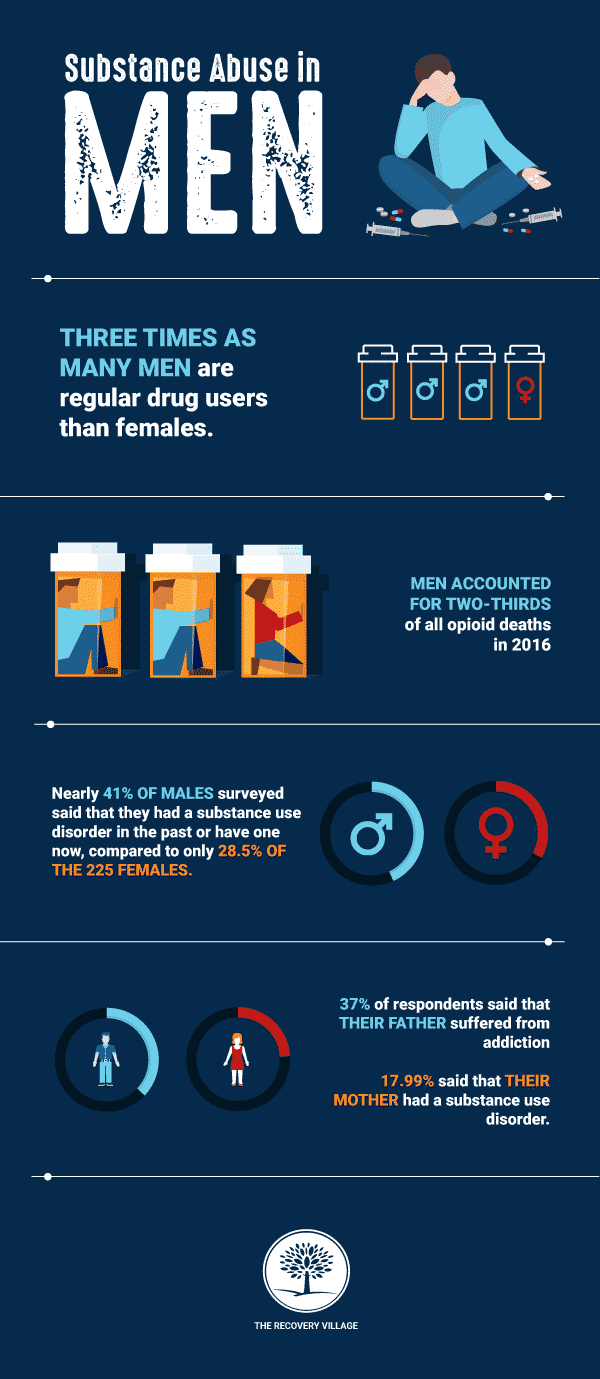Men use drugs more frequently than women and were more likely to report a past or current struggle with addiction, according to survey results.
Drug misuse can affect anyone, from any background or with any amount of fame or fortune. There is no limit to who can be impacted by a substance use disorder, both directly and indirectly.
Children of parents who suffer from addiction often carry with them emotional burdens for much of their lives. Parents of children who misuse drugs or alcohol find similar struggles in trying to help their sons or daughters overcome the obstacles of addiction. Friends worry about their friends who have substance use disorders, and siblings can feel pain for their brothers or sisters who are misusing drugs or alcohol.
Support groups often experience the burden of a loved one’s addiction, but the influences from social networks and family structures can also be the cause of addiction.
The Recovery Village®surveyed 400 people from all over the United States about the impact of their family’s history of addiction on their own substance use disorder. A little more than 10% of respondents who said they had suffered or currently suffer from addiction put fault for the illness on a “family member who faced addiction.” A similar percentage of respondents said that family history is the biggest contributing factor for their addiction.
Treatment Can Be Life Changing. Reach out today.
Whether you are struggling with addiction, mental health or both, our expert team is here to guide you every step of the way. Don’t wait— reach out today to take the first step toward taking control of your life.
However, within the results, a greater number of males than females reported a history of substance misuse or were presently suffering from addiction. Why are men in the United States at a greater risk of developing a substance use disorder?
Differences in Male and Female Drug Misuse
As cited in numerous reports, includingone from The Telegraphin 2014, more males than females are addicted to harmful substances. The gap is large, too, as the report states that three times as many men are regular drug users than females.
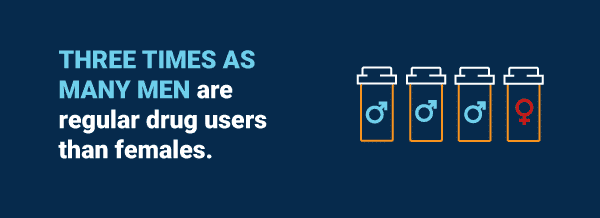
In the midst of an opioid crisis in the United States, young adults ages 24 to 35 were hit hardest by deaths resulting from this drug class, and especially young males. According toa report in The Atlantic, men accounted for two-thirds of all opioid deaths in 2016.
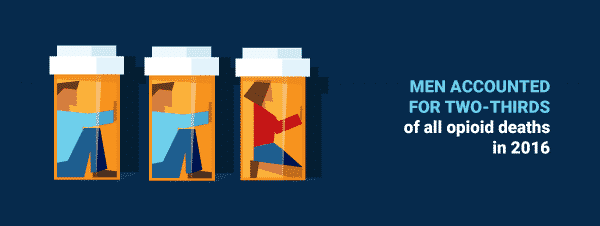
Our survey also included questions about family history with addiction and the respondent’s past and present substance misuse. Most of the respondents were females, but most of those who said they once suffered, or still suffer, from addiction were males.
There were 134 respondents who said that they had struggled or currently struggle with an addiction to drugs or alcohol. Nearly 41% of the 175 males surveyed said that they had a substance use disorder in the past or have one now, compared to only 28.5% of the 225 females who took the survey. There were similar gender discrepancies when respondents were asked about which of their family members struggled with an addiction.
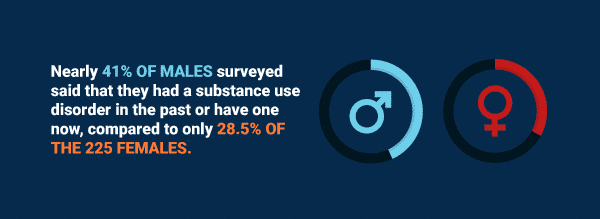
Around 37% of respondents said that their father suffered from addiction, while only 17.99% said that their mother had a substance use disorder. Nearly 30% said that an uncle had an addiction, compared to 17% of respondents’ aunts. When looking at grandparents, nearly 18% of respondents said a grandfather who suffered from an addiction while just under 10% reported a grandmother affected by this disease.
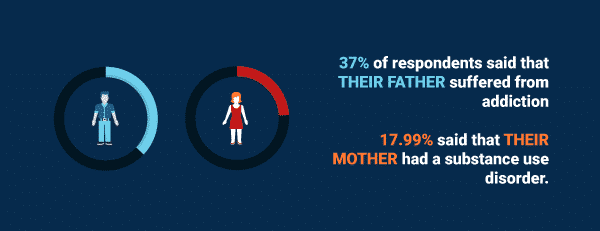
Why is this wide gap between males and females present? There are several factors that may explain the difference, including family influence, peer pressure and propensity for risky behavior.
Family, Friends and Society: The Cycle of Male Substance Misuse
Substance misuse can materialize from many different factors in someone’s life, including a family member’s addiction, influences from friends or genetic disposition to risky behaviors. Additionally, an individual’s gender can play a major role in their development, including their personality and abiding by social norms.
The Telegraph article “Why Do Men Take More Drugs Than Women?” cites Dr. Adam Winstock, a psychiatrist who specializes in addiction and drug misuse. He believes that males are more prone to take risks and drug misuse falls within that type of lifestyle. However, that isn’t the only reason males are more prone to misuse.
If men are more likely to regularly use substances, peer group influence may also play a role in the cycle of male substance misuse,especially during adolescence. If an adolescent male convinces other male friends to experiment with drugs or alcohol, it could kickstart a pattern that eventually leads to drug misuse and addiction. However, the pattern of male teenagers influencing their friends to drink alcohol and take drugs can also start outside of a peer group.
TheU.S. National Library of Medicine National Institutes of Healthconducted research on the effects that parents who misuse drugs or alcohol can have on their kids. Findings show that by young adulthood, 53% of these children showed “evidence (of) an alcohol or drug use disorder as compared to 25% of their peers.”
How is the cycle of addiction connected to males more than females? Around 54% of men who took our survey said that their family’s past with addiction led to their own substance use disorder. By comparison, only 49% of women said this.
The influence of family and friends, combined with men already being more likely to take risks and misuse substances, may explain some of the differences between the genders when it comes to substance abuse.
How to Talk to a Friend or Family Member With an Addiction
Even if the substance misuse does not seem to negatively impact that person’s life, a substance use disorder can have an indirect effect on many people connected to them. Whether it’s aninterventionin a group setting or a one-on-one conversation, reaching out and offering love and support can be one of the best ways to inspire someone who is suffering to seek help.
If you have a loved one who suffers from an addiction, now is the time to help them.The Recovery Village®has rehabilitation facilities in five states and provides numerous resources on how to communicate and help people close to you. OurFriends and Family Portalis a great place to start for information and tips to help you navigate the recovery process with your loved one.

